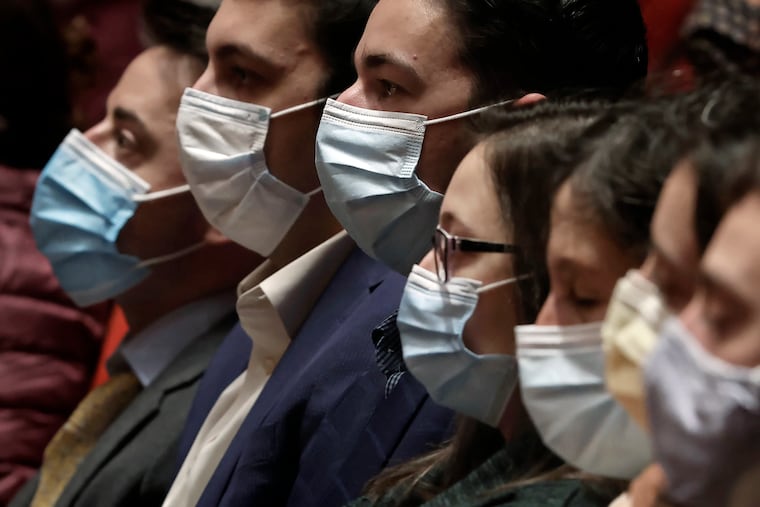COVID-19 changes Philadelphia Orchestra’s Messiah cast — and conductor — at the last minute Wednesday. Thursday show canceled.
The Wednesday night performance went on but Thursday's Messiah show was canceled.

Here we go again. With escalating live performance cancellations in the face of a surge in COVID-19 cases, the Philadelphia Orchestra’s Wednesday excerpts from Handel’s Messiah at the Kimmel Center went on despite formidable COVID-19-related challenges that had the orchestral pivoting in ways that were unthinkable two years ago. Thursday night’s performance was canceled.
Orchestra spokeswoman Ashley Berke on Thursday declined to answer specific questions about the health status of performers. The orchestra is pursuing contact tracing within the group of Messiah musicians, she said, and canceled Thursday night’s performance as a precaution.
The orchestra issued this statement late Thursday afternoon: In adherence with organizational COVID-19 protocols, and out of an abundance of caution, the Philadelphia Orchestra has canceled tonight’s performance of Handel’s Messiah. All other performances on the Kimmel Cultural Campus are scheduled to proceed as planned.
On Wednesday, five key players — guest conductor Julian Wachner and four vocal soloists — were replaced in roughly 24 hours, and not with some B team. Starrier names were in evidence in the Wednesday performance, that had enough hot moments to send the audience home in a Christmas-y state but also was unable to disguise the strain of the situation.
The decisions behind Wednesday’s cast changes were explained to the public by orchestra management in a statement released Wednesday: “The cast was replaced out of an abundance of caution and in line with the Orchestra’s Covid protocols.” .
What would’ve been an interesting collaboration Wednesday — Wachner is a major force in New York City’s choral community, and the soloists have worked with the best in the international early music world — ended before ever meeting the orchestra players. Such quick action isn’t unusual this week. In New York, the Broadway show Come from Away was halted on Tuesday seconds before it was to begin. The New York String Orchestra canceled its annual Christmas Eve concert in Carnegie Hall. Philadelphia Orchestra’s decision for the Wednesday concert had the distinction of going forward with the performance while observing protocols.
The replacements for The Messiah were anything but a matched set of Handel specialists. But this is an observation more than a complaint; they were the main reason for the audience to be there. Soprano Nicole Cabell delivered luscious tone at the expense of enunciation (I’ll take it). Mezzo-soprano Meg Bragle, who is an early-music specialist, had a fine sense of storytelling with the words, though her voice would be better appreciated in a smaller hall. Tenor Joshua Blue had an irresistible Italianate tone but wasn’t so comfortable with the intricate passage work. Bass-baritone Christian Van Horn had it all: stage charisma, a thrilling upper range and every word was not just fully articulated but infused with meaning.
The Philadelphia Symphonic Choir wasn’t so fortunate. The soloists dropped their masks during arias but the choir, which numbered around 36, sang through masks, and was positioned behind the orchestra in the Conductor’s Circle. The sound suffered. At times, individual sections of the choir barely registered. Though the final “Amen” chorus made strong impression, the “Hallelujah” chorus did not.
The choir’s director, Joe Miller, who served as the guest conductor, was not one to radiate energy: He was more a curator than an interpreter. Orchestral passages, including the “Overture” and “Pastoral Symphony,” were slow but not purposefully so. Recitatives lacked dramatic impetus. But then, this performance played amid atypical expectations: It happened. Not always heroically. But it was there.
Inquirer music critic Peter Dobrin contributed to this article